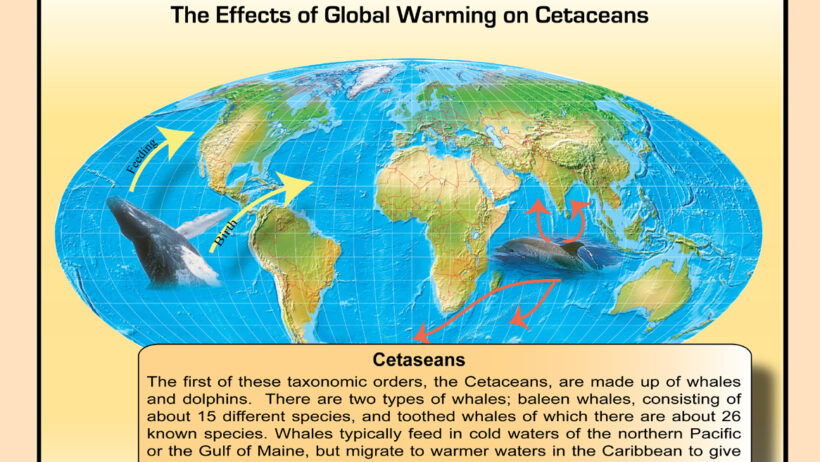The phenomenon of global warming has captivated the attention of not only scientists and policymakers but also ordinary individuals who observe its tangible effects in their daily lives. The notion that our planet is becoming warmer is an observation that resonates deeply within our collective consciousness. This surge in temperatures can be attributed largely to human activities, which in turn elicits profound curiosity and concern regarding what this means for our future.
Global warming signifies a long-term increase in Earth’s average surface temperature, primarily driven by the accumulation of greenhouse gases (GHGs) in the atmosphere. Chief among these gases are carbon dioxide, methane, and nitrous oxide, which are released through a range of activities including fossil fuel combustion, deforestation, and industrial processes. This unexpected climatic shift not only challenges the inherent balance of Earth’s ecosystems but also poses formidable threats to human health, safety, and financial stability.
Understanding global warming necessitates delving into its causes, effects, and potential solutions—all integral parts of a broader narrative that shapes our modern existence.
The Evolution of Climate Science
To comprehend the complexity of global warming, one must first appreciate the historical context of climate science. The foundations were laid in the 19th century when scientists such as John Tyndall began to elucidate the role of gases in trapping heat within Earth’s atmosphere. Fast forward to the 20th century, the advent of sophisticated technologies allowed researchers to measure atmospheric conditions more accurately. The continuous rise of global temperatures over the past century prompted a paradigm shift in scientific inquiry, culminating in the establishment of the Intergovernmental Panel on Climate Change (IPCC) in 1988.
In recent years, the narrative surrounding global warming has evolved from a scientific curiosity to a pressing global crisis with far-reaching implications. The focus has increasingly shifted toward interdisciplinary approaches that encompass environmental studies, social sciences, and economics. These multifaceted insights contribute to a comprehensive understanding of global warming and its potential repercussions on humanity and the natural world.
The Consequences of Rising Temperatures
The effects of global warming are evidenced by observable changes in climate patterns, biodiversity loss, and adverse impacts on human health.
As the planet heats up, one of the first indicators is a noticeable increase in the frequency and severity of extreme weather events. Hurricanes, heatwaves, and floods have become more prevalent, leading to devastating consequences for communities worldwide. The correlation between rising ocean temperatures and heightened storm intensity is well-documented, showcasing the interconnectedness of our climate systems.
Moreover, global warming is disrupting ecosystems, threatening flora and fauna alike. Species that cannot adapt to changing climates face extinction, leading to a cascading effect that alters the balance of entire habitats. The loss of biodiversity undermines ecological resilience, making it increasingly difficult for ecosystems to cope with environmental changes.
The human health implications are equally disturbing. Respiratory diseases are exacerbated by air pollution, which is typically elevated in warmer conditions. Heatwaves can lead to increased incidents of heatstroke and dehydration, especially among vulnerable populations. Furthermore, changing climatic conditions can facilitate the spread of vector-borne diseases such as malaria and dengue fever, posing additional public health challenges.
As these effects become more pronounced, they breed a sense of urgency and introspection about humanity’s role in shaping the environment, driving home the reality that climate change is not merely a distant threat, but a present-day dilemma requiring immediate attention.
Navigating Towards Solutions
In light of these daunting challenges, the quest for solutions to combat global warming has garnered momentum. The conversation is evolving beyond awareness into actionable strategies aimed at reducing GHG emissions and promoting sustainability.
At the heart of these solutions lies the transition towards renewable energy sources. Solar, wind, and hydroelectric power present viable alternatives to fossil fuels, reducing dependency on carbon-intensive energy models. Investments in renewable technologies not only mitigate emissions but also create job opportunities in emerging industries.
Additionally, practices that enhance energy efficiency serve as an essential tool in the climate mitigation arsenal. From simple changes in household behavior to the wide-scale adoption of energy-efficient appliances, these adjustments can contribute to significant reductions in overall consumption.
Reforestation and afforestation initiatives stand as another critical component in addressing global warming. By restoring ecosystems and increasing the number of trees, we can enhance carbon sequestration, lowering atmospheric concentrations of CO2. These natural solutions, combined with innovative agricultural methods, can create a more sustainable and resilient food system.
Moreover, global cooperation is paramount. Climate agreements such as the Paris Accord exemplify collective efforts to address this multifaceted issue, urging nations to commit to emission reduction targets. The cooperation between governments, organizations, and individuals fosters a collective responsibility for our planet’s future.
In summation, global warming is a potent reminder of the intricate relationship between humanity and the environment. As we stand on the precipice of potential catastrophe, we must recognize the importance of informed action and develop a comprehensive understanding of the scientific, social, and economic facets of this critical issue. Through awareness, innovation, and collaboration, we hold the power to shape a sustainable future amidst a warming planet. The time for dialogue is now, but action is imperative for the generations to come.







